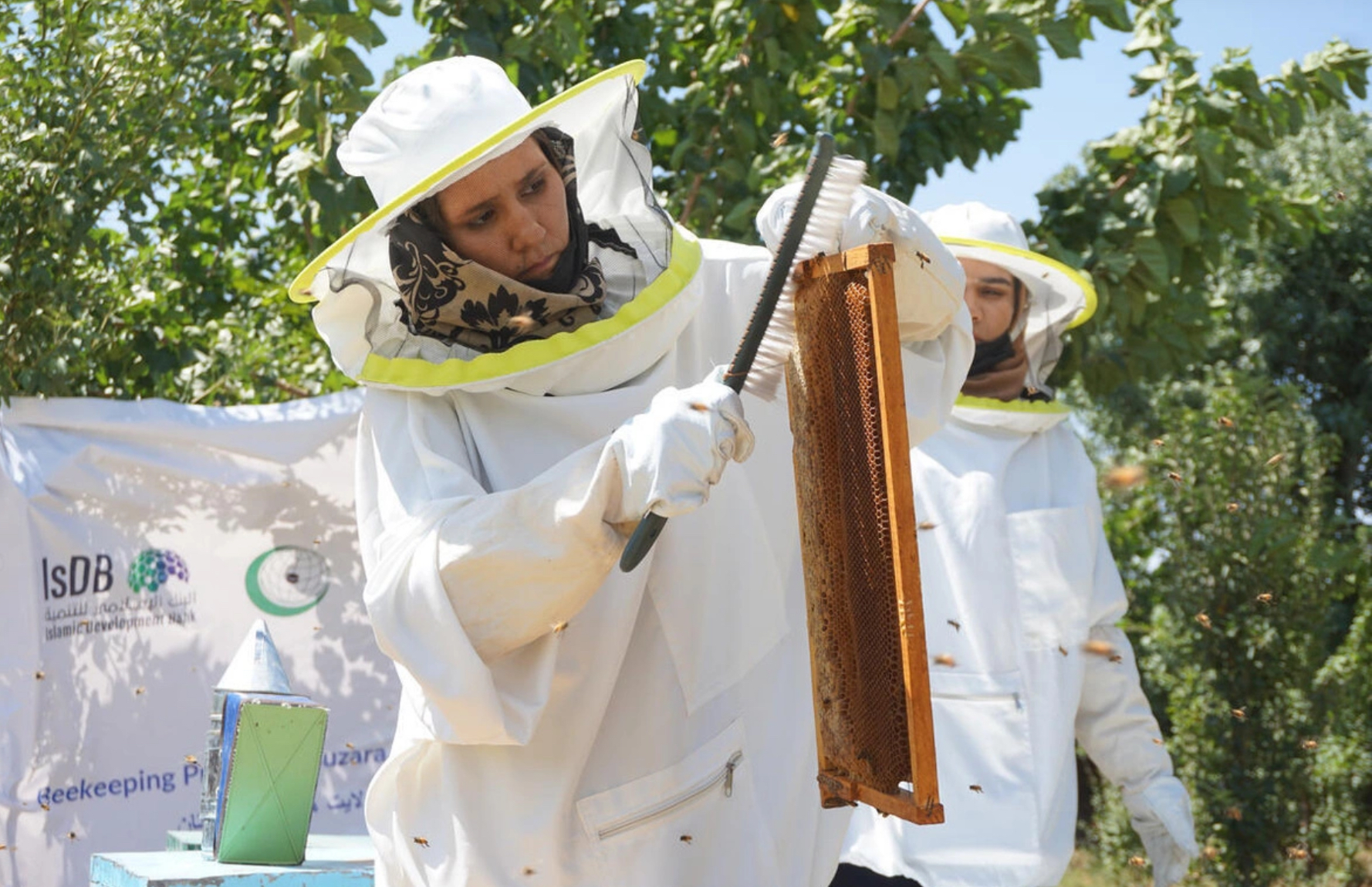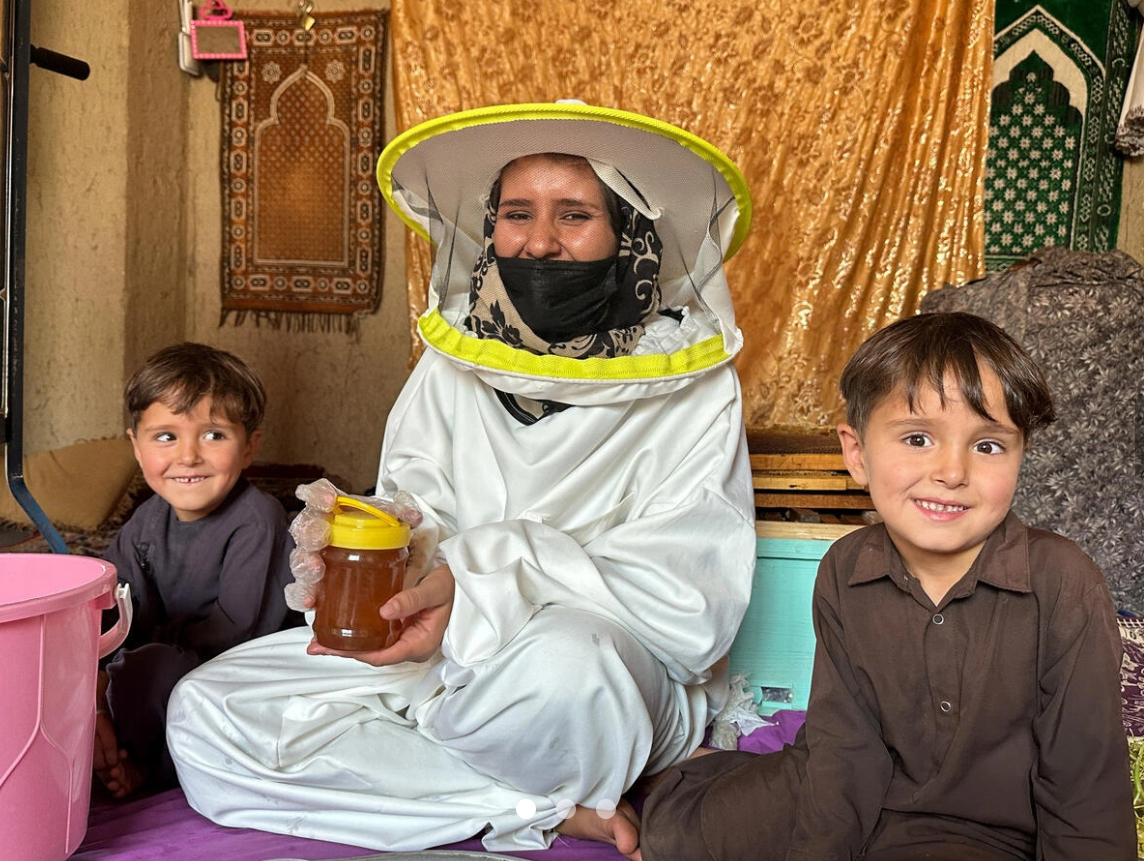In the remote village of Dehzaq in western Herat province, Afghanistan, a transformative beekeeping initiative is offering new hope to struggling families. Launched by the Women Activities and Social Services Association (WASSA), in partnership with UNHCR, the UN Refugee Agency, this project is not only providing a source of income but also empowering Afghan women and men by teaching them the art of beekeeping.

The project, which specifically encourages women's participation, trains residents in beekeeping techniques, equipping them with the necessary tools and knowledge to start their own businesses. Each of the 50 participants—38 of whom are women—received protective gear, honey extractors, and hives containing around 70,000 bees. WASSA brought in local beekeeping experts to ensure the training is both practical and effective.
“For years, I’ve dreamt of standing on my own and having a job,” says 25-year-old Hadia, one of the participants from Dehzaq. “This opportunity means everything to us, and we’re committed to making the most of it.”
WASSA’s partnership with UNHCR extends beyond Herat, with similar projects running in central and eastern Afghanistan. In total, 200 people are receiving training under this program, which is supported by the Afghanistan Humanitarian Trust Fund, the Islamic Development Bank, and the Saudi Fund for Development. The initiative aims not only to create sustainable livelihoods but also to foster environmental stewardship by promoting beekeeping as a means to enhance local biodiversity.

In the nearby village of Kala Gerd, 54-year-old Halima, another participant in the project, has already seen significant benefits. After her husband fell ill and a series of earthquakes devastated their home, she turned to beekeeping to support her family. Her first honey harvest yielded 26 kilograms, and she plans to expand her hives and become the family’s main breadwinner.
The project's impact goes beyond individual families. Bees are vital pollinators, and their presence in rural communities can significantly boost agricultural yields.
“Research shows that placing hives in an orchard can increase crop yields by five times,” says Jalil Ahmad Frotan, WASSA’s beekeeping project supervisor.
For many participants, like father-of-ten Hafizulla, beekeeping has provided renewed purpose and a path to a brighter future.
“I was jobless and depressed, but now I have something to focus on,” he shares. “Beekeeping is not just a job; it’s a way to build a better life for my family—a life that’s as sweet as honey.”
Follow Daryo's official Instagram and Twitter pages to keep current on world news.
Comments (0)